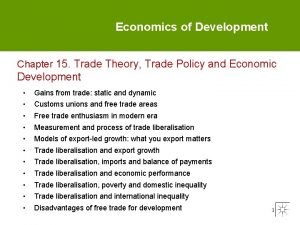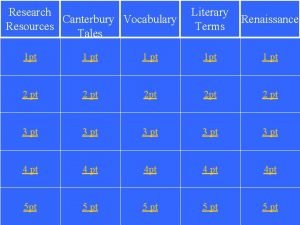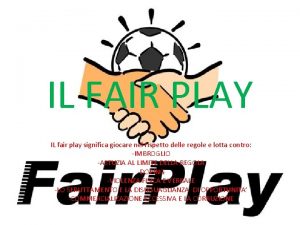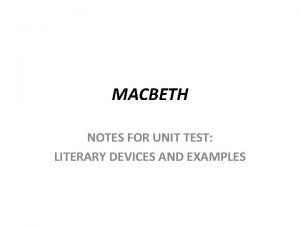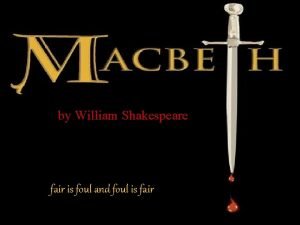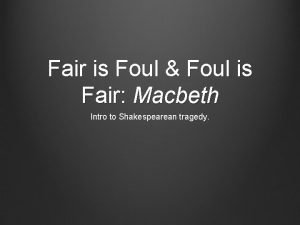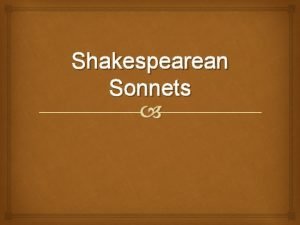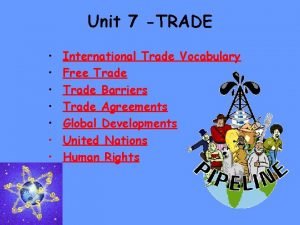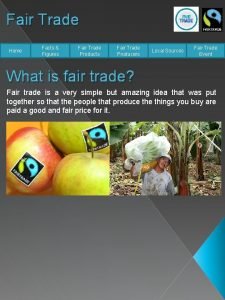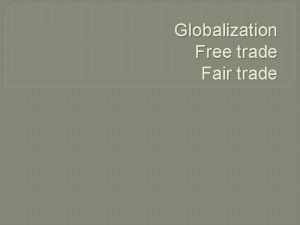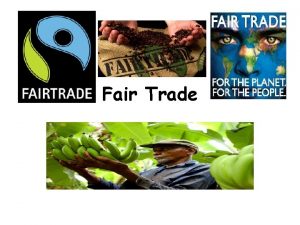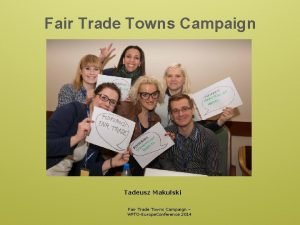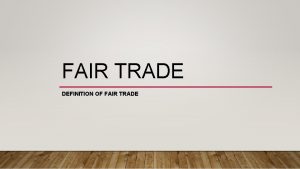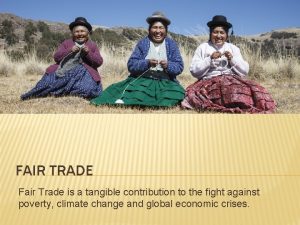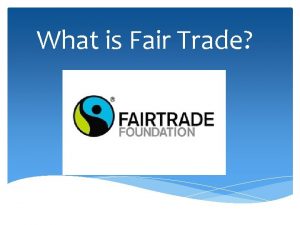Fair trade What is Fair Trade the activity









- Slides: 9

Fair trade What is Fair Trade? ”the activity of making, buying, and selling goods in a way that is ethically and environmentally sound” ” a price-support system that helps farmers in developing countries”

What are Fair Trade's key areas of activity? To provide a guarantee on products (products labelled ”Fair Trade” are ecologically produced) to facilitate more demand for Fair Trade products (e. g. Starbucks is the largest purchaser of Fair Trade products=> consumer demand equals better supply) to sustain partnership (”smaller co-

Why opt for Fair trade products? By ”going green” and buying Fair trade products, you can ensure decent working conditions for smaller farmers that companies pay sustainable prices (which must never fall lower than the market price, often 10 -13% above the market price) a better conscience as a consumer (do you know the working conditions companies like Dole expose their farmers to? )

Criticism of the Fair Trade movement Millions of farmers are in line to join Fair Trade Not only small farmers but large plantations are also involved in the organization Farmers aren't left with a sustainable income (e. g. Fair Trade pays 10 -13% more than the market price but farmers need to pay cooperative fees, local taxes and farming expenses) Yet, there is no single answer to poverty and solving the food-crisis. The primary aim of Fair Trade is to organize and empower farmers, which helps achieve equity and better working

Where does Fair Trade need to go next? It is imperative for the Fair Trade organization to recruit more retailers like Starbucks and Nestlé Consumers have to become aware of eco-friendly alternatives and increase their consumption of ”green” prodcuts The selection of Fair Trade products has to expand the availability of these products in local supermarkets needs to be ensured Different institutions need to get involved in the movement and thus

Other eco-friendly labels on the market The Body Shop founded in 1976 by Anita Rodrick, The Body Shop started off to bring about a paradigm shift in buying habits (which it did!) the company sources most of its raw material from producers in developing countries (e. g. The bananas used in the skin-care products consist of bananas that have been damaged in some way and would otherwise be disposed of) The BS products were initially not tested on animals (however, this claim was later diluted to 'against animal testing') => but how can we test beauty products if not on animals or human beings? Rodrick became a pioneer for recycling in the 70 s; her

Eco-cert a French organization established in 1991 specialized in the certification of organic agricultural products In 1997, Ecocert was one of the first French companies to install its head office in bioclimatic buildings and insist on using only recycled paper The label stands for responsible purchasing policy in developing countries), carbon reduction and recycling in the production process

Energy star was launched by the EPA (Environmental Protecting Agency) in 1992 is an international standard for energy-efficient office equipment and home electronics Its products either automatically switch to 'sleep mode' when not in use or reduce the amount of power used when in 'standby mode' Rainforest Alliance Stands for an alliance established in 1986 through which - farmers are required to operate sustainable farm and pest management

Globe Hope An innovative Finnish design company established in 2001 by Seija Luukkala makes ecological design out of recycled material (purses, bags, hats etc) The Nordic Swan The official sustainability eco-label in the Nordic countries, initially introduced by the Nordic Council in 1989 To obtain the label, companies need to promote the most environmentally sound products and take into account factors such as free trade and proportionality (cost vs. benefits)
